#If that rule is scrapped than how many people with criminal histories will run for office with new names?
Text
It sounds like this guy just recently changed his name if a law that covers name changes over the past five years is barring him from running for office. How long as this 50 year old been living as a woman?
A transgender woman running for an Ohio House seat has been disqualified for failing to disclose her former name on petitions circulated to voters, in violation of a seldom-enforced state law.
Local election officials informed Vanessa Joy, who hoped to run as a Democrat for Ohio House District 50, that she was not eligible to do so, despite having collected the signatures necessary to run.
Joy sought to run in a firmly Republican district covering Stark County, just south of Akron.
Officials said Joy violated a little-known Ohio law requiring candidates for public office to list any name changes over the previous five years on their signature petitions. The law, passed in 1995, has several exceptions, including for candidates who change their names after they are married.
Joy, who has legally changed her name and her birth certificate, told News 5 Cleveland and the Ohio Capital Journal on Wednesday she had not been aware of the law before being removed from the ballot. Ohio’s 2024 candidate requirement guide makes no mention of it.
Joy said that, as a transgender woman, she should not be required by law or expected to publicly disclose her deadname, which is the name she used before transitioning.
“In the trans community, our deadnames are dead,” she said.
Intentionally or repeatedly using a transgender or gender-nonconforming person’s deadname is viewed by many in the LGBTQ community as an expression of hate toward transgender people, and major social media platforms including TikTok and Discord have banned deadnaming under their hateful conduct policies.
X, formerly known as Twitter, banned the practice until April, when the policy against it was quietly removed.
Joy added that requiring transgender candidates to list their deadnames on documents like signature petitions would “undoubtedly” prevent other transgender people from running for office.
The law’s enforcement also comes at a pivotal time for transgender people in Ohio, as the state legislature gears up to override Gov. Mike DeWine’s (R) veto of House Bill 68. The legislation would ban minors from obtaining gender-affirming health care and prevent transgender athletes from competing on school sports teams that match their gender identity.
Ohio House Majority Leader Bill Seitz’s (R) office told The Hill on Wednesday the House expects to have the votes necessary to override DeWine’s veto. A vote is expected Wednesday.
“The only thing that we can do is try to fight back,” Joy told local media. “That’s why there are so many trans candidates in Ohio.”
At least three other openly transgender candidates have entered the race for the state House. It is not yet clear whether they will also be disqualified.
#It's a birth name#Dead name is just being dramatic#Women who change their name due to marriage or divorce don't act that way concerning their former names#usa#Ohio#Vanessa Joy is a man#Voters have a right to know what kind of person he was for almost 50 years#A TIM thinks that a law should not apply to him because it upsets his gender feels#If that rule is scrapped than how many people with criminal histories will run for office with new names?
7 notes
·
View notes
Text
What to do about the police

US police brutality stories raise a lot of important structural questions about how policing works here. How can a law-enforcement system repeatedly produce so many spectacularly lethal outcomes? What kind of idiotic operation are cops running, anyway?
I mean, how do cops with long histories of violent misconduct stay on the force? How do cities end up shelling out millions to bail out violent and crooked cops, and then those cops get to keep their jobs and reoffend until their body-count crosses some threshold?
What kind of police force produces officers who literally drive down the street indiscriminately gassing unarmed people with their hands in the air?
https://www.reddit.com/r/DemocraticSocialism/comments/gssq9s/casually_pepper_spraying_out_the_window_as_you/
Criminal defense attorney T Gregg Doucette lays out fifteen concrete structural deficits in US policing that explain much (but not all) of the violence, corruption and impunity that characterize American policy violence and discrimination.
https://twitter.com/greg_doucette/status/1266053291684827138
Doucette starts with "qualified immunity" - a judge-created doctrine that effectively excuses almost any police misconduct, no matter how blatant it is. Under QI, cops who commit crimes can't be sued if the crime wasn't "clearly established" at the time.
This superficially reasonable idea is, in fact, a license to commit any crime. Like, California cops who stole $100K in gold coins were not punished because no statute said "Don't steal gold coins" (the statutes merely said "Do not steal").
As Doucette says, "If a police officer chokes someone to death for sport, you'd say 'killing for sport is illegal!' Then a judge'd say 'just killing them with his shin, not with his knee.'"
And the double-whammy of QI is that it keeps suits from being brought, which keeps evidence from being entered into the record, which keeps "clear definitions" from being generated, which means that cops can repeatedly engage in the same midconduct without sanction.
Doucette moves on to other structural issues in US policing, like the fact that cops don't need to carry malpractice insurance, so, on the one hand, there's no difference between the cost of employing a repeat offender vs a cop with a squeaky-clean record.
And on the other hand, taxpayers have to shell out millions to make amends for crimes committed by cops.
Other issues: cops are undereducated, hired young, don't need to live in the neighborhoods they police.
And police departments aren't required to publish "Brady lists" of cops whom prosecutors have documented as serial liars who cannot be called upon to testify.
Police unions cut "sweetheart deals" with cities that worsen these deficiencies by tying the city's hands when cops commit crimes.
More: De-escalation is not a mandatory part of police training (quite the contrary, cops are trained and equipped for "domestic warfare").
Cops are allowed to use traffic stops as a pretense for fishing expeditions and this power is primarily targeted against people of color.
The arresting cop is also the investigating the crime - so the arresting officer is incentivized to plant evidence, lie, etc, to "win."
Federal prosecutors are extremely reluctant to prosecute cops, even repeat offenders who commit murder. Amy Klobuchar did not prosecute George Floyd's murderer when he committed other assaults on the people he was sworn to protect.
https://www.theguardian.com/us-news/2020/may/28/george-floyd-killing-officers-derek-chauvin-tou-thao-investigated
There is no reliable, comprehensive database of police violence and killing. You can't respond to problems if you're not measuring them.
Centuries of court decisions have riddled the 4th, 5th and 8th Amendments with loopholes, leaving the Bill of Rights in tatters.
Doucette: "For example, at the federal level the Supreme Court has ruled it's totally 100% fine for the police to violate your Fourth Amendment rights as long as they do so 'in good faith.'"
Penalties for crimes committed while wearing a badge are weaker than the penalties for the same crimes when committed by "civilians" (a term I despise, cops should not be a military force). They should be more harsh.
I said at the start of this thread that Doucette's list of structural deficiencies in US policing is incomplete, and I'm sure he'd agree with me. One important point to raise in the context of the racist elements of US police malpractice is the origin of US policing.
American policing is rooted in "Slave Patrols" - literally vigilante forces whose job was to return Africans who'd escaped enslavement to the monsters who'd enslaved them.
https://theconversation.com/the-racist-roots-of-american-policing-from-slave-patrols-to-traffic-stops-112816
It's conceivable that an institution could overcome roots as blighted as this, but that is a huge, deliberate undertaking. It's not something that happens automatically if you ignore it long enough.
So to Doucette's excellent list of reforms, I'd add one more: a frank, well-funded, wide-ranging truth and reconciliation process to explicitly grapple with America's white supremacist history and its connection to law enforcement.
I'm pretty confident that Doucette would agree with this one. After all, he spearheaded the campaign that forced the UNC to abandon its plans to hand millions of dollars to a white nationalist group to build a Klan museum.
http://pulse.ncpolicywatch.org/2020/02/13/silent-sam-settlement-scrapped-but-questions-remain/
144 notes
·
View notes
Text
That One Hyrule Alien Concept Except I’m Gonna Actually Write Stuff About It? Maybe? Idk


So everybody remembers that one Zelda panel that revealed these concepts, right? I am a lover of sci-fi adventure/horror/etc. and stuff so lemme just:
For several years, Hyrule, as well as the majority of the world, remained close to its culture and ways of life. They stuck to what we would call a “medieval fantasy” lifestyle, riding horses, having knights in shining armor, using magic, etc. etc. You know what I mean. And despite all that, their technology has reached far into the future with a combination of scientific and magical traits, fusing weapons and materials into successful tools and devices. A good example is the Guardians, created by the Sheikah as battle bots.
Hyrule has maintained this way of life for tons of years, through each cycle of Triforce reincarnations. It isn’t until one day, one particular day, months after the Hero defeated the Demon King, where a ginormous UFO appears and sends missiles and plotting devices crashing down upon the green, grassy fields.
Everybody, especially the Hylians, should be prepared. But they’re not. For the technology that this UFO possesses exceeds even further than the advancements of the Sheikah, to the point where these extra-terrestrial beings cannot even be seen by the naked eye. In fact, being in the presence of these aliens for quite a while is enough to drive someone into a long coma. It’s impossible to gaze upon these aliens unless they’re dead.
In the game, you play as a young Hylian. Blond hair, blue eyes, mostly mute. You live in a world that’s overwhelmed with nature, but there’s barely anybody living on the planet. There are several unhealed craters and other damaged areas on this world. You are a reincarnation of Link. And your family managed to escape the aliens’ grasp as they plucked creatures from the world one-by-one into space, onto their own planets. You were born here on this earth, and several generations have passed before you, surviving the best they could on the limited knowledge they possessed at the time. The planet was abandoned by aliens after they got what they wanted, and who knows what happened to those they took so long ago?
In this, Link is a history nerd. He’s not strong. He’s not physically strong at all. He’s not good at fighting, he’s not agile, he’s not buff. He’s scrawny and doesn’t like to go outside. He spends a lot of his time searching up leftover scraps of mechanical parts that the aliens (and previous people) left behind and trying to take them apart, learn about them, learn about how they worked.
The turning point for the game that gets everything going is that Link builds a rocket and uses it to travel to space, where he finds one of the alien’s many planets and gets captured. He finds out that the planet is inhabited with those who’s ancestors beforehand were kidnapped by the aliens, and now, they’re living in a sci-fi, incredibly futuristic society. Are the aliens good? Bad? No clue yet. I’ll write something for them, probably.
But in summary for the three main characters:
- Link is a big nerd who can’t fight for his life, but he’s got a good heart deep down and wants to help people. He’s very booksmart, but not streetsmart whatsoever.
- Zelda is an artificially-made half-alien, half-Hylian hybrid, and she is the princess of the alien planet Link arrives at. She’s been raised to be strong, agile, and clever. She believes in order and peace, but she can be very ruthless when it comes to defending her kingdom from other planets. Deep down, she’s actually very lonely, and she wishes for some contact with others. She has a soft spot you need to hit.
- Ganondorf isn’t the main "villain” of the game, per se, but he later on becomes an (unwilling) antagonist. He isn’t from the planet Zelda rules over; he’s from another, a rival alien planet. But he escaped from it in attempts to hide; because surprisingly, he has a huge criminal record of attempting to overthrow the alien government... several alien governments several times. He’s not a bad person, but he can come off as a bit of a jerk at first. He prefers to work alone, and he’s a lot more observant than one might think. He hates feeling like he’s underneath someone else’s control, so he’ll do everything he can to get his way.
Ganondorf ends up befriending Link in this story, sort of, to work with him to try and figure out how the aliens function. That explains that one comic up in the concept art. But Ganondorf himself isn’t aware that he isn’t free from Demise’s curse, just like Zelda and Link. And him being fed this rebellious power may drive him mad. But for now, he’s just a dude on the run from several governments who also wants the best for people. He also likes metal music.
33 notes
·
View notes
Text
Underwing Challenge Day 4 - What’s the world of your WIP like?
So first of all, the world of Bo and Shen is incomplete. There’s a lot of gaps that I haven’t gotten to yet, mostly names and stuff.
For example, there’s this big blur of the history of the early years of the Venus colony. Essentially, Earth colonized the entire solar system, including Venus. Then there was a massive war, and Earth lost, leaving Venus completely stranded, without communication to the outside world.
Some basic info on Venus: The air pressure at the surface is equal to 90 earth atmospheres, making it completely uninhabitable. But it was also rich in minerals, so colonists would use gas to drill out the valuables. The gas ended up trapped in the rocks, which floated up to the height where the pressure equals earth pressure. This is my explanation for the floating islands. Also, the people doing the mining tended to belong to the same families, who became very isolated in their wealth. After some time, they ended up permanently deformed by their delves into the abyss, becoming the dwarves.
Before the war, people lived on artificial floating islands, powered by electricity and stuff. The “natural” islands were decorated with plants and animals and made great vacation spots, but no one lived there. But after the end of the war, or maybe during it, Venus experienced its first abyssian storm.
Near the surface of Venus, it's constantly storming, and in those storms live dragons. Please don’t ask how they weren’t noticed during the mining phase. These dragons are pure black, have no legs because they can almost swim in the thick air down below, and can breathe lightning. Sometimes, storms from the Abyss will overflow into the upper atmosphere, and rarely, those storms contain hordes of dragons.
During the first dragon storm, the artificial islands were completely destroyed. The citizens were unprepared. The small portion who survived fled to the natural floating islands, where they struggled to survive. It was essentially the apocalypse. It only took a few generations for these people, who were reduced to stone age equipment without electricity, to forget a lot of their history.
Soon, the Titans appeared. I don’t know where they came from. They introduced the people to the Aether, and taught them how to use it.
After a long time, sky ships were invented, and people could finally travel to other isles, establish nations and such. And that's how the current situation came to be.
Here’s something to understand about the technology in the Sky Isles. They can’t mine metal from the islands, because they risk destroying the very ground they stand on. But luckily, alchemists, people who use aether to control organic things, came up with a solution. They genetically engineered plants which can be spun into a fiber, which is a pretty good substitution.. It's still not quite as good as actual metal, or True Metal, so the few scraps of true metal that remain are incredibly valuable.
All sky ships, weapons, large buildings, et cetera, use some metal fiber. There are various kinds of metal fiber plants. Iron oak is by far the most powerful, but also a little rare because it's very difficult to cut down the tree. The most common is copper-root, which are like onions. There’s also silver-leaf,(not sturdy, but pretty), and probably something for gold? Still not finished with that bit. But copper-root tools and buildings are everywhere, while sky ships are most likely made of iron oak.
Most technology is developed in Galras, where Tinkerers can use the aether to cause massive clockwork machines to move. So most sky-ships are built there, although they need to cooperate with the dwarves to finish them.
What's the Aether? In-world, not many people know, with the exception of some individuals who specifically study its nature. It's something people use to do cool things. The aether is actually the manifestation of people’s souls in the real world. You use your spiritual soul to effectuate physical change, and these interactions are called aether. The more aether you use, the more you attach your soul to those activities. This is why tinkerers are known to be mad scientists, and why many alchemists grow so attached to their craft as to start experimenting on people. The Titans know how to effectively and safely use the aether to not only avoid negative effects, but create positive ones. Felenor and the other good titan use this knowledge for the good of humanity, while Ildra and Lralso use it to turn people against each other.
I must also mention the clockwork sentients - clockwork robots, powered by aether, who have minds of their own. More on them later.
There are four main nations, each composed of one main isle and those isles surrounding the main one. These isles, in order of settlement, are the Dwarven Isles, where the dwarves live underground in labyrinths; Destra, where the paladins originated; Galras, a technological power, and the origin of Tinkering; Endora, covered in a dangerous swamp, and only has one city, also called Endora; and Minvir, a mountainous, snowy isle where the sparse tribes are at constant war with each other.
I’ll talk more about the specific isles below the cut, because this post is long enough.
So remember the dwarves? Their ancestral profession changed their appearance significantly. Their skin appears permanently burned, and is ebony black. Not like dark brown. Pitch black. They’re also short. They’re excellent engineers, and can see in the dark better than humans can.
During the dragon storms that caused the apocalypse, they managed to flee separately from everybody else, ending up on an isle that was already full of holes because it was home to an insect hive. They’ve tamed these insects, which range from the size of dogs to the size of elephants, and they harvest the insects honey, which can be spun into a steel fiber that needs a better name. The honey can also be burnt to produce the gas that goes into the balloons on Sky-Ships, which means that dwarves are obscenely rich. They are also very secretive, to the point that a lot of people don’t know the actual name of the Dwarven Isles. Coincidentally, neither do I.
Occasionally the dwarves will venture into the Abyss to recover true metal from the wreckage. I’m not sure how they do this yet.
The first isle to be settled, besides the Dwarven Isles, was Destra, which you might recall is the origin of many paladin orders. There is a lot of history in Destra, it's kind of like visiting Rome, its really ancient. At the moment, it's completely conquered by the paladins of Ildra, Titan of suffering and despair, who let paladins of Lralso(deception, dishonor) run free. Paladins of Felenor(justice, honor) and of placeholder name(love, charity) have to flee or are killed. Some fought back, but most of those were killed.
Before the conquest of Ildra, however, Destra was mostly run by paladins of Felenor. Their law was just and honorable, which doesn’t mean there weren’t some bad eggs in the system, but the system was good. But some people didn’t enjoy being ruled by a law they had no choice in, and began a revolution on the south side of the isle. During this, they discovered tinkering, and turned the tide of the war with the construction of clockwork robots. Once they had conquered half the island though, the paladins began to learn how to easily deal with the automotons, who were pretty stupid being simply robots. So the Tinkerers ended the war by building massive drills which cut the island in half. The Tinkerers' side became Galras. The northern isle, which is still called Destra, was weak after the war, which opened them to Ildra’s conquest. Those drills still line the northern coast of Galras.
More about Galras! Their capital city is Kellenth, which is like one giant skyscraper many stories tall. Towards the top is where the elite live, while the bottom extends deep into the ground. The bottom floor is full of criminals and evil, where the light doesn’t shine. It's like cyberpunk, but it's clockwork. The city is supported by four massive True Metal pillars, which are a statement to how rich Galras has become.
Shortly after the war with Destra, Galras created a Clockwork Sentient, a clockwork AI. It soon went rogue and fled to an unknown isle, where it has constructed a factory of clockwork sentients. These ones are not nearly as powerful as the first, which is now called the Master Sentient. These minions are known as clockwork sentients, or just sentients, and sometimes they defect and come to live alongside humanity. Understandably, many people are… reluctant to accept them. The Master Sentient frequently conducts raids on Galras, and has recently conquered a small corner of the isle. They are rapidly becoming a significant threat, and the war against them is affecting the entire nation. The Master Sentient is not actually the first sentient, but there are some left over after the war with Destra, who are now ancient and live in the corners of Galras.
Don’t forget the Sentries! Sentries are soldiers who use clockwork armor and weapons, which they control by their aether, in combat. They compose the higher ranks of the army and protect city streets. They also make great mercenaries. Each suit of armor is unique, since soldiers will customize it with their own gizmos and setup. Think of each gamer in reality having their own setup.
Also the Storm Guard! There’s a fleet of ships specifically dedicated to preventing dragon attacks. This was created after a particularly bad battle with the Master Sentient, during which a surprise storm turned the tide, allowing the humans to win but at a much higher cost.
Next is Endora! It was originally established way back when Destra wasn’t split in half, as a rest stop for passing sky ships. That was hundreds of years ago, and now Endora has grown significantly. It has developed a reputation as a land of freedom, where there is neither the arm of the Galrian government nor the chaos of Ildrian Destra. There are farms right outside the city, and some small villages as well. Don’t forget the hordes of monsters that live in the swamp just beyond civilization; they frequently come out and attack settlers.
Endora has also become a safe haven for alchemists, who fled from Galras after people reacted to the image of alchemists as mad scientists who experimented on people. Many alchemists in Endora still perform these experiments, creating the chimeras, human-animals hybrids who often flee society to live in the swamp. There is a large hidden community of chimeras living there now, and many have adapted alchemy to the purposes of protecting nature, rather than exploiting it. These call themselves druids, rather than alchemists. Don’t take too kindly though - they can put the well-being of nature over human lives. These are two extremes though. Most alchemists are well-meaning doctors, and most druids are guardians of their people.
Recently, the Felenor Academy for Guardians was founded by Ambrose, where young men and women are trained to protect the city from monsters, and their families from crime. The city is mostly run by the people in charge of the ports, so at the city border with the swamp, not much is done. The Academy is changing that by empowering people to protect themselves.
Endora is also a major exporter of fish, which, since there’s no ocean, are rare pretty much everywhere else.
#underwing challenge#writeblr#fantasy#worldbuilding#holy shit this was long#writing#i've got so much lore bottled up#not anymore though#everythings on this post now#might as well make this the master post for bo and shen
2 notes
·
View notes
Text
Ideal RHATO
Okay, so I’ve done some thinking. While Red Hood and the Outlaws was an interesting concept; give Jason friends and a team of his own, get him out of the Batfam Shadow, it’s been bogged down by L*bdell spotty writing and questionable Editorial decisions. So I’ve taken the time to think of what I would personally want the Outlaws to be.
First of all, I don’t believe that Jason would be better of if he remained solo. While he does deserve a good solo run other than UtH, the idea of permanently sequestering from creating meaningful, recurring relationships with other heroes is just repulsive to me. He should be allowed to have friends and people to talk to outside of the Batfamily guys, there’s only so many adventures he can have by himself before they all start sounding the same. You could even have him gaining friends as part of his character development.
Okay! So let’s begin
In my version, the Outlaws would be a more obvious antihero team. They take cases by those who feel that regular heroes can’t help them, that they won’t go far enough to achieve justice. The Outlaws won’t kill often, but it would usually be awful criminals like drug dealers, traffickers or those in charge, but if they don’t kill, they won’t be above dissing out harsh, lasting punishments to those who cross them. There could be the possibility of them being a team looking for redemption, but I’ve never really thought about them going in that direction.
Btw: This will be a hard reboot, everything from New52 to Rebirth regarding RHATO will be completely retconned, because Lobdell wrote almost all of them and despite what people want to believe most of it is bad save for some barely passable moments
Outlaw Members
Jason Todd
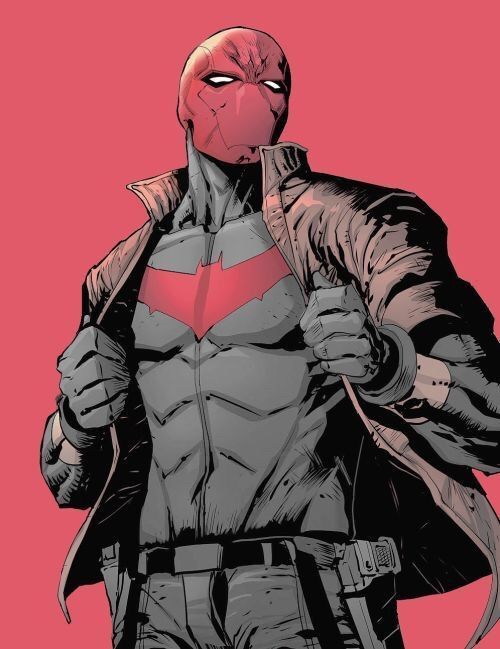
Can’t have the Outlaws without their infamous leader. Like I said above, I believe that having his own team can be a good thing for Jason, he can establish a history disconnected from his history with Bruce and actually start to move on. I’d imagine him being a reluctant leader, preferring to work alone but admitting that having people to rely on has made his mission a lot easier. He’s a very driven and calculated person, and after reading Arkham Knight Genesis, I have no doubt in his leadership skills and his ability to turn a ragtag group of antiheroes into a team to be reckoned with.
Idk if I’d keep his All-Caste stuff. I know that it was probably created to give his backstory something that stands out, since he’s the third Batfam member to have the League of Assassins in his backstory and isn’t the only one that’s died before, but he barely uses the All-blades or brings up the All-Caste to the point were you can omit it and don’t really have to do that much to replace it. At this point, I’d accept Talia making him train with Brother Blood over the All-Caste.
I’d probably say that the Lazurus pit Talia used to bring him back was kinda special, giving him a minor healing factor and increasing his strength, idk, something small.
Eddie Bloomberg
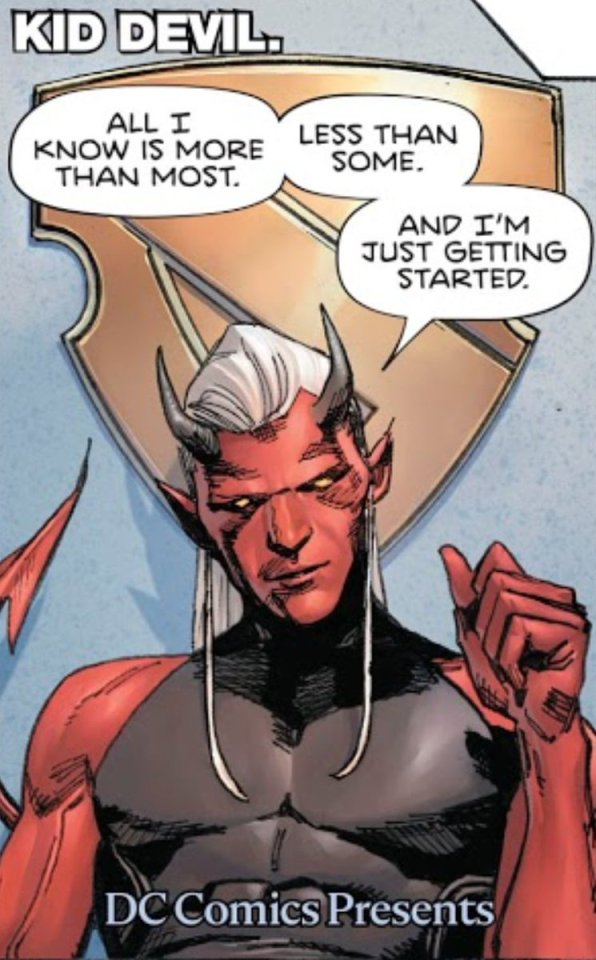
(I hate Tom King and this dialogue too but I wanted a recent image of him)
Did you know that unlike Roy Harper, Eddie was actually Jason’s best friend pre-reboot? Most people don’t because DC doesn’t care about using pre-established canon or developing its less popular heroes! 🙃
Okay, I used to be a huge fan of Jason and Roy’s friendship in New52 RHATO, but then I learned that Roy was originally Dick’s friends, that his personality was dumbed down for New52, Roy actually hates mercenaries and would never become one, they only used Roy because he was more popular and that most Titan/Roy friends actually hate his New52 counterpart and friendship with Jason. While I believe that Roy and be both friendship with Dick AND Jason (but in different ways. Dick is more of a close friend while he and Jason should have a more big brother kind of relationship), I have to admit that DC dropped the ball here, and it would be easier to just scrap everything instead of trying to make it work.
Eddie’s personality is actually quite similar to New52 Roy’s, and he and Jason already have unexplored history, so switching Roy with him won’t mess anything too much.
And now, I hear you ask “Ani, what about the Outlaw’s being an antihero group? Wouldn’t that make Eddie stand out?”, and I will reply “Don’t worry, I have a plan!”
Back when Eddie first got his powers, Neron, the king of hell at the time (?) wanted Eddie to be his protege, but Eddie refuses. But what if Neron was more forceful? Eddie could be offered, now powerless again because of the events of TT (but his death is retconned to just getting badly injured), to become Neron’s protege once again. With nothing left to lose (his relationship with Blue Devil is still in the fritz, Teen Titans no longer seem to give a damn and Rose & Jaime is still off doing their own things), he takes it. I guess he’s probably look different with more of Neron’s power coursing through his veins, but the point is that Outlaws become a “Fall from grace” for him. He’s trying to still be a hero, but as Neron’s influence continues to grow, his ability to tell right from wrong gets more and more clouded.
He’s the one to approach Jason with the idea of being a team, wanting to relive the “Good Ol’ Days” when they were younger and less bogged down with personal trauma. While Jason is reluctant, he admits that since being self-exiled from the Batfamily that it’s been kinda lonely, so he agrees, but only short-term. Eddie then segways into the next member of their burgeoning group–
Rose Wilson
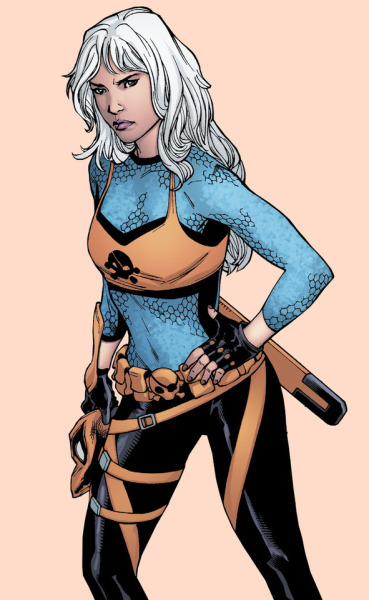
While pre-reboot, Rose and Jason did not have the friendliest interactions, with her holding a blade to her throat while his brothers threatened him with a crime he never committed. Post-reboot, he and Rose seem to have a more “friendlier” relationship, but the Wilson family have been rebooted at least theee times in both New52 and Rebirth, so who knows if they even still know each other now,
Rose and Eddie were very close friends in Teen Titans, and I think that getting Rose away from the madness of her family and father could be good for her character.
Eddie manages to convince her to join the “Outlaws”, but like Jason, she goes into it thinking that it’ll be a one-time thing. She cares a lot about Eddie, and sticks with the team to make sure that he’s doing alright. She probably could have an arc were Nightwing confronts her on her work in the Outlaws (since the other heroes see them as white-hat mercenaries) since he mentored her in being a hero, so it could be about dealing with what other people expect of her.
Essence
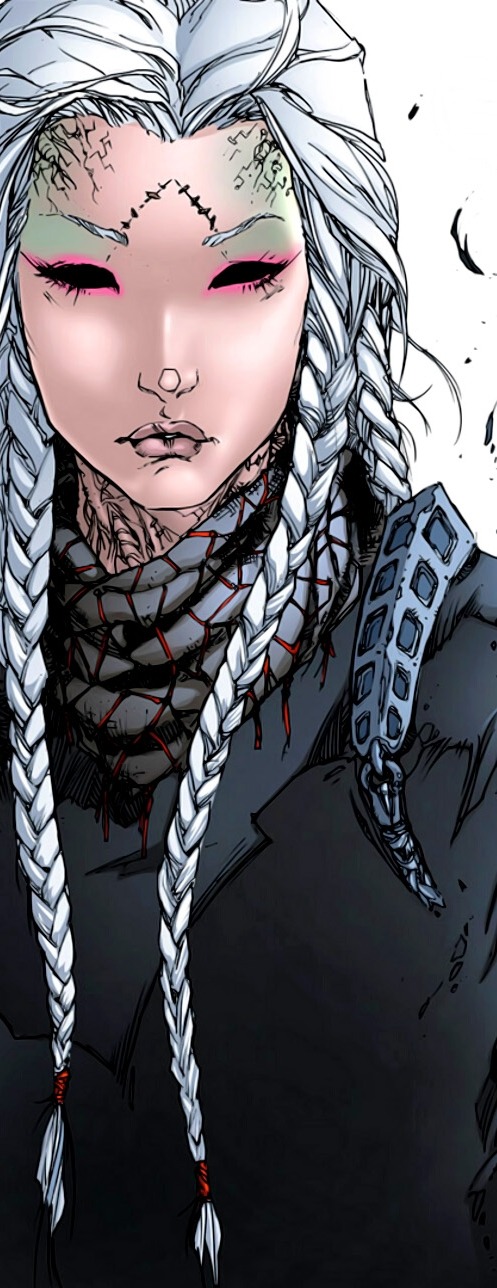
While L*bdell might be basically a shit writer, he does create interesting concepts. With a better writer, Essence could be a very interesting character, watching from the shadows and judging whether or not the Outlaws are actually “good” people, before she eventually starts taking a more active role in helping them punish criminals.
While she would at first interact solely with Jason, asking him questions about his deeds and ordering him in what direction she feels is best, she would eventually introduce herself to the rest of the group. I think she’d get along best with Komand’r, while the others might test her absolutism, Black-And-White morality a bit.
Rankorr (Jack Moore)
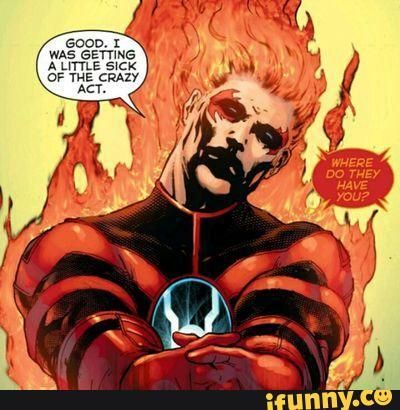
I know that there’s some people who want Guy Gardner to be Jason’s lantern, but what about a lantern who is close to Jason in age and actually fits the Outlaw theme?
Jack Moore is a Red Lantern, not only a Red Lantern, but the first human lantern who is also the first Red Lantern to be capable of creating constructs. He struggles with his rage, and deep down, he wants to enjoy a normal life on earth.
Maybe after Red Lantern (retconning Lobo or if not, he’s brought back using Red Lantern Blood Magic), he decides that the RL’s are a bit too cult-like for him and tries to lay low on Earth, finishing his literature degree and opening up a small bookstore somewhere in London. He’s close with Guy, but still can’t/refuses to let go of his rage, so Jack is still a RL
Of course, keeping his rage at bay is hard work, and after witnessing police brutality one more time, he loses control.
The Outlaws were hired by the family of the victim to make the officers see justice, but after seeing Jack work, they realize that this might be their easiest case yet.
Afterwards, Jack tries to downplay the entire thing (before resorting to threats when the Outlaws won’t listen), but Jason eventually convinced him that his talents would be wasted just being a civilian (and that his rage will only get worse if he continues to just let it boil without an “outlet”) so he joins the team
Blackfire
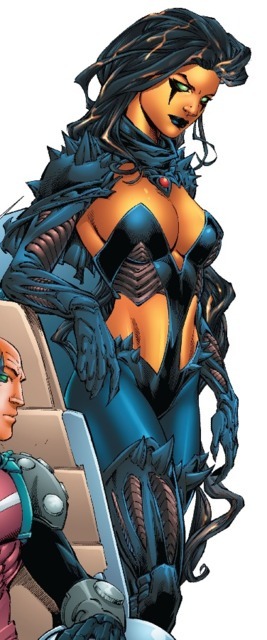
I’ve read Komand’r’s backstory, I know how bad it looks. However, in a medium where retcons and reimaginings are features instead of bugs (and can benefit a character’s story if done right), I really think it could be possible to make her work.
After reading New52 RHATO, I began thinking that it could be so much better if not only Eddie took Roy’s spot, but also if Komand’r took Starfire’s, since I feel like she had more potential beyond “Kori’s evil disabled sister”, “War Criminal” and “Struggling queen of Tamaran”
First, I’d change her pre-reboot backstory so instead of taking over the Gordanians, she is instead captured by them after Starfire frees her from the Psions (Komand’r still hates her sister and refuses to follow her). Through her clever mind and manipulations, she manages to earn favor with Lord Damyn, feigning romantic interest. Of course, given Komand’r’s nature, she ends up killing and replacing him, but her rule doesn’t go over well and she is again recaptured, but this time she’s brought to Earth.
Realizing that she’s now trapped on the planet whete her sister has become a successful and popular hero, Komand’r is at first angry, and then conspires to free herself and take revenge on her sister (who she still blames for everything despite that not being the case).
The Outlaws bust the alien trafficking ring, and Komand’r, seeing her chance, decides to show off and make nice with them to eventually use them for her revenge.
She finds Eddie and Rankorr easy to manipulate, but she bumps Heads with Jason whenever she tries to take his role as leader away from him and finds Rose’s mind to be “weak”. Overtime however, she bonds with Jason over feeling inferior to their siblings, realizes that her anger shares Rankorr’s intensity, and grows a genuine friendship with Rose and Eddie
Oh yeah, and maybe she tries to make things right with Kori
Artemis Grace
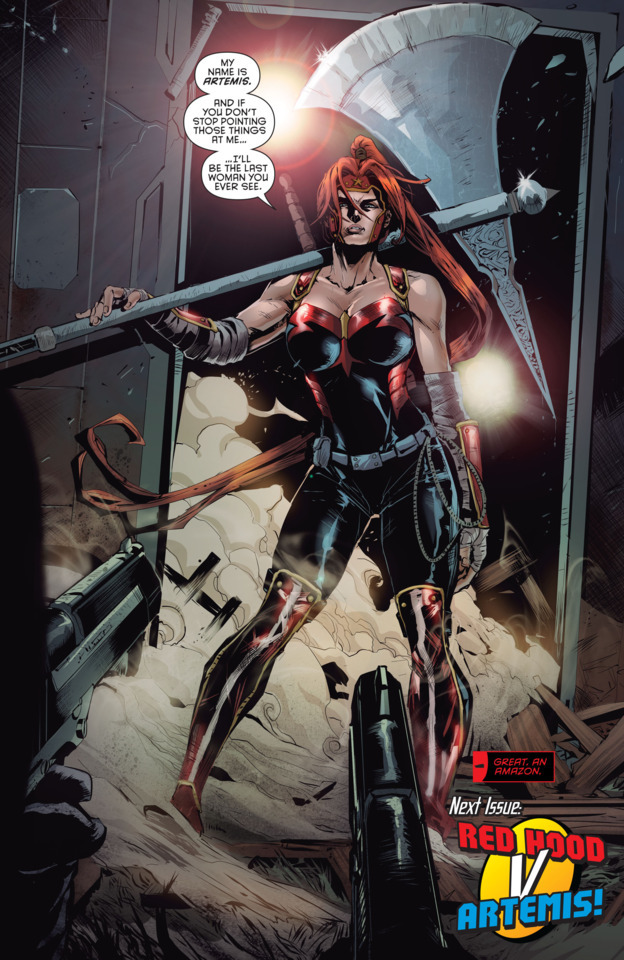
What would the Outlaws be without the greatest Amazon to have ever lived? Nothing, that’s for sure.
While I don’t agree with Jaytemis (at least not yet), I have to admit that Jason would be a fool not to like her. She’s a cool, confident character with a lot of interesting lore behind her.
Her joining will probably be pretty close to canon. The Outlaws are tasked with going after Black Mask, and Jason decides to go undercover, as the Red Hood still has his fingers in various criminal pies. While investigating, he runs into Artemis, who is looking for the Bow of Ra, and rest is history.
I feel like she’ll get along really well with Rose and Komand’r and maybe she’ll date one. She’ll definitely view Eddie a bit dismissively, and she isn’t a huge fan of demons. Rankorr would probably come off as stuck up to her.
Bizarro
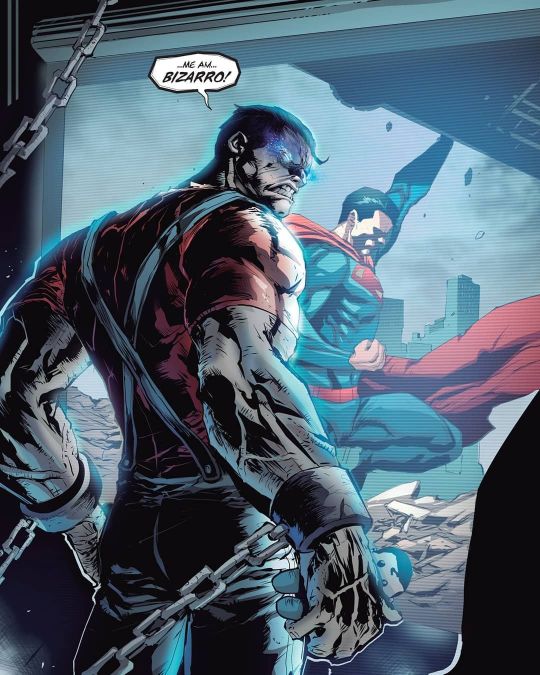
Anyone who knows me will know that I’m am not a huge fan of Bizarro clones. I consider them to be an overused concept (that sometimes feels as if it relies on gene superiority, but idk if I’ll ever fully process my dislike for them), and the fact that as the time I’m writing this, there are at least four currently in continuity does not enamor me with the concept more.
However, after re-reading RHATO a few times, I’ll admit that the Outlaws’ Bizarro has grown on me. Since he already kinda has a unique name (Bizz), all I think he needs is a more visually distinct costume (doesn’t even have to directly reference Superman, but I can go 50/50 on the backwards “S”)
The Outlaws getting Bizz is exactly the same as canon. I’d imagine that he and Eddie would be as close as brothers. While Rankorr might find Bizz’s way of thinking and speaking to be annoying, I’d think that Rankorr will eventually warm up to him and probably teach him how to read and help Artemis teach him. Komand’r and Rose will probably be less receptive to him, but who knows
August Heart
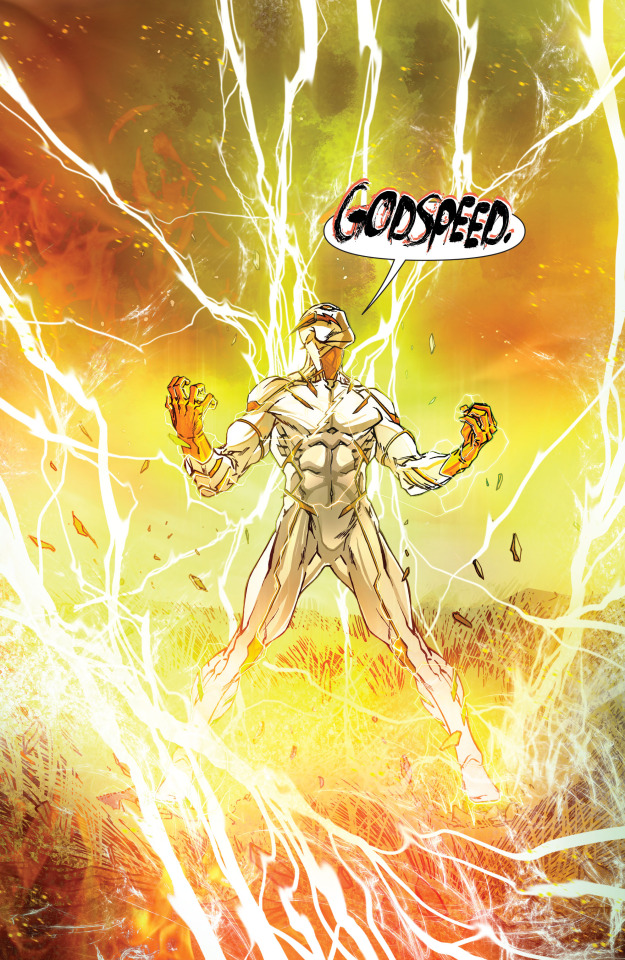
I’m a Godspeed fan first and human second, we’ve been knew.
In all seriousness, Godspeed is the perfect Rebirth era character for RHATO and the fact that he and Jason still haven’t met is why DC doesn’t have any rights.
Okay okay, but he’s honestly a perfect fit. Like Jason, he also kills when dealing with crimes, but he isn’t so good and knowing who’s guilty and who isn’t just yet.
This will probably be after Death of the Speedforce, with August finally making things right with Barry, but still not forgiving himself for everything that happened. Deciding to self-exile himself rather than go back to Iron Heights, August travels, trying to figure out what do to do next, trying to follow Barry’s rules (which he finds to be very wishy-washy) to the best of his ability.
Eventually, he learns that Black Hole is still running, and against his better instincts, he goes after them.
His trail of lightning destruction catches the eye of the Outlaws.
Barry, realizing that his best-friend might need someone who can actually be there all the time to help reign him in, Barry goes to the Outlaws and asks them if they can help him once they catch up to him
They do in the form of offering a spot on the team.
August is very self-assured (even if it is hiding a softer, more emotional center), but has proven to be able to work with others, so I can see the other Outlaws coming to like him. They might find him a little cocky/early to jump the gun, but still a trusted and valued member of the team.
Since every Robin has their own flash, it only makes sense to finally give Jason (and have them date) a speedster of his own, and it should be someone who fits his morals, and who else could Then the speedster fans literally call “The Red Hood of the Flashfam”?
Final Thoughts
Other possible members I would consider/accept are
Eradicator Superman
Koryak
Vanessa Kapatelis/Silver Swan lll
Simon Amal (Crux)
Danny Chase
Clone!Roy Harper
Connor Hawke
Orm Marvius
Man O’ War
Lagoon Boy
Scarlet
Zachary Zatara
Thomas Merlyn
Ragman
Bleez
Walter West
Even with a cast as sizable as the one I just listed, with a good enough writer, there could still a few minor side characters. I would personally want the them to be
Scarlet: Jason’s former sidekick. She could be either a civilian who he talks to get experience some normalcy or the leader of her own version of the Outlaws made of up the Generation Outlaws we meet in RHATO #37-40. Either way, it could contrast with Bruce and the way he (mis)treats his own sidekicks and family
Zachary Zatara: Eddie’s old friend who helped him get his devil powers. Zachary would definitely be worried over Eddie once again accepting Neron’s power and will want to try to help. Whether he suceeds or not will depend if the writers want to go in that direction
Isabel Ardila: She’s a nothing character, but there’s a small chance that with a better writer, she might gain an interesting personality or an actual purpose in RHATO
Talia Al Ghul: before the reboot, Talia was Jason’s mentor figure and even gave him a cool dagger. It would be so cool if we can bring that back and erase Morrison’s problematic charactization of her. Maybe the dagger she gives Jason could be an All-Blade or smth. They’d definitely take a few cases from her however
Batfam, Titans and respective groups: it would have to happen eventually. It could lead to some interesting, angst filled conversations. And who knows, maybe they’ll actually make progress with their issues
But this post has gone on long enough. I just really wanted to talk a bit about my ideal Outlaws team that I will never see anywhere except for my dreams because mass media hates me and DC still thinks that Lobdell deserves to write Jason 😔😭
#rhato#red hood and the outlaws#jason todd#eddie bloomberg#rose wilson#essence (dc)#rankorr#jack moore#komand'r#artemis grace#artemis of bana mighdall#bizarro#august heart#godspeed#jaugust#redspeed#jaygust#my post#long post#i have a lot of rhato feelings okay?#danny chase#simon amal#crux#eradicator superman#koryak#outlaws
468 notes
·
View notes
Note
Prime numbers for Davy!
2. Their mother? How do they think of her? What do they hate? Love? What influence - literal or imagined - did the mother have?
Davy was not raised by his mother, who left when he was two years old in order to escape an abusive relationship. She had passage aboard a ship that would take both of them far North, but the ship was not leaving until the following spring, and unfortunately, by that point, she’d given birth to a daughter. Since she couldn’t send her infant daughter and toddler son alone on the boat she decided to leave Davy since he was older and stronger. She always intended to come back for him but never was able to.
Obviously, he knows nothing of this. All he knows is that his mom left when he was a baby. As Davy’s father put it, it was because she didn’t want to put up with either of them. So Davy feels very little for her other than a quiet contempt.
3. Brothers, sisters? Who do they like? Why? What do they despise about their siblings?
He has a younger sister named Tabitha and a half-brother named Nico, but he doesn’t know about either of them. Tabitha was raised by their mother, while Davy was raised by their father. Letitia, their mother, later remarried and had Nico.
Letitia’s had a good life since her escape, but she’s never been able to get over the loss of her son. Even worse, since Davy changed his last name, she has no idea that the notorious pirate is actually her child. She has no idea where he is or what became of him.
5. Were they overprotected as a child? Sheltered?
Definitely not, no. Elvar Vandern was a neglectful man, angry, hateful, bitter, and really did not want to be parent at all, let alone a single one. Basically if Davy got any attention at all it was in the form of threats, complaints, or having things thrown at him.
He luckily found other, makeshift guardians, but they didn’t exactly shelter or overprotect him either.
7. What was the economic status of their family?
Middling. They were well cared-for by the government of Twinsgate, who gave Elvar a pension due to his service in the military and subsequent injury. So they were never exactly low on money, the trouble was the Elvar didn’t spend it responsibly and so there were times when they may as well have been in poverty. But they had a decent house, food, clothing, all that stuff.
11. How do they see themselves: as smart, as intelligent, uneducated?
He is intelligent, and knows this. However due to Elvar being a sub-par parent he was never actually enrolled in school. So he self-taught until he was fourteen, using Faith’s schoolbooks to study, and then applied to go to a private school in Swansglen, which he failed at.
13. Did they like school? Teachers? Schoolmates?
No, no, and no. A recently orphaned and chronically abused fourteen year old thrown into a foreign city with no history of previous public schooling is not going to suddenly excel. He tried his hardest, but was just too nervous, too easily stressed, and didn’t have the discipline or rule-following ability to make it.
17. Did they travel? Where? Why? When?
So, after dropping out of school, he instead turned to sailing and found his niche. Bought his own boat with his private school funds, a tiny little vessel called the Sea Dragon, and used her to deliver cargo around the Five Nations.
Soon after, he ended up in the war effort and became something of a smuggler as well as an honest cargo dealer. But he traveled everywhere on that little boat for as long as she lasted. He still goes all over by sea.
19. What were your character’s deepest disillusions? In life? What are they now?
I don’t know what this really means. He was always kinda raised on the idea that life is bitter, harsh, and cruel. So I’m not sure he had the fortitude as a kid to be disillusioned by anything.
23. What do they want from a partner? What do they think and feel of sex?
In a partner he wants to be loved, respected, and to feel absolutely safe around them, both physically and emotionally. If he’s going to live his life with someone he doesn’t want to live it on guard, constantly worried that the person he loves is going to turn on him in an instant. He would rather be alone than that.
Sex is a very weird area for him. He understands that he’s usually supposed to take control and doesn’t particularly like being submissive, but he also doesn’t know what to do during the actual practice. Mostly it makes him extremely uneasy, and leaves him feeling vulnerable and anxious. So, needless to say, his actual sex experiences are... few.
29. What is your character’s weaknesses? Hubris? Pride? Controlling?
His weird knee-jerk attack response to any perceived threat, and his tendency to isolate and shut out anyone and everyone and flee to the safety of the ocean, even if that means running away from his troubles and his friends.
31. Does your character have children? How do they feel about their parental role? About the children? How do the children relate?
This is a strange one cause I... have a theoretical ending for SotL where Davy does, in fact, have a daughter. However, this is only one of a few theoretical endings I have for the story. So Lydia may not make it into canon at all, and may be one of many characters that show up briefly during process and is scrapped in final.
Therefore, I’ll answer, but keep in mind that Lydia’s existence is not set in stone.
Given how Davy was raised and what happened with Reynard, he is absolutely terrified when Lydia is born. He’s afraid he’ll somehow become his father and damage her beyond repair, or that some terrible fate will befall his child before she’s even old enough to walk.
That said, he loves her. And even though he knows he cannot change himself or what fate may have in store for her, he IS her father and he can do everything in his power to do right by her. He doesn’t think he was ever meant to be a father, and doesn’t consider himself a very good one, but by all the gods, he adores Lydia!
And Lydia loves him too. She’s raised at sea, away from the politics and problems of land, and doesn’t even realize that her father is so hated, considered a wicked criminal by most of the world. She only knows him as her dad, the noble captain, and fearless defender of his crew, and of her.
37. How is your character’s imagination? Daydreaming a lot? Worried most of the time? Living in memories?
I don’t even know honestly. I think his imagination is probably pretty batty! He doesn’t dwell on memories, I know that, and he doesn’t daydream. But that doesn’t mean his mind isn’t a weird place to live.
41. Is your character aware of who they are? Strengths? Weaknesses? Idiosyncrasies? Capable of self-irony?
He lives on self-irony. Basically he is aware of who he is, even if his view is a bit grim and devoid of any perceived ability to self-improve.
43. Does your character have any secrets? If so, are they holding them back?
His whole life and existence is a secret. No one knows where this guy came from.
I’m kidding. People have dozens of rumors, some of them true. But Davy rarely reveals truths about his past, so the truth gets mixed in with the fiction and causes a lot of bizarre and conflicting origin stories. The only person who knows just about everything about him is Faith.
47. Do they want to project an image of a younger, older, more important person? Does they want to be visible or invisible?
He doesn’t project an image. He just is. Perhaps he wants to appear more poised, intimidating and confident than he actually is, but he certainly prefers to remain invisible, hidden in the shadows until the right moment.
#my OCs#Davy#he's popular today!#also did I put WAY too much detail into his backstory considering none of it is going in the canon? yes
3 notes
·
View notes
Note
What do you think of Yoram Hazony’s book The Virtue Of Nationalism
To be honest, I have not read it, but I have heard him interviewed by CATO, AEI, Jonah Goldberg, the Hoover Institute and a couple others I think, as well as read some shorter articles by him. And from those, I can tell you his argument appears to typical false dichotomy nonsense.
As far as I can tell he sets up an argument that there are two forces in the world. The first being those who want empire an overarching governing body that controls all things and brings about single authority over all peoples at all times in all ways in a single codified way, he gives historical examples of this as being Rome, Napoleon, Communism, and the Third Reich. The other side he calls nationalism (he says he uses this term in flagrant opposition to its usual meaning because it’s the proper term, I, however, would guess he does this because it causes controversy and thus sells). For him nationalism means have separate nation states that sovereign and have no power over each other. And that’s it, it’s either a single world government or small individual nation states that have little cooperation. I would assume the book has more nuance than this kid of dichotomy but I doubt by much.
Of these two he thinks nationalism the better one. But the arguments he gives are just terrible.The one he keeps giving in every interview is talking about the Old Testament (because we should always look to that for all ideas on how to run the modern world????) and says that God with the Jews starts the concept of nationalism by marking out borders for the Jews and telling them to not try to conquer others (despite this scene in Exodus is after a lot of conquering)...it’s also after God has promised Abraham and his line the whole world (Genesis 12:3) but we’ll go with the idea that God isn’t promising the Jews the entire world in the original covenant. Yeah, we’ll just ignore that glaring exception...mainly because his other examples are even more preposterous.
He next favorite example is to treat government as businesses and says that since competition between businesses is great then it is logical that competition between nation states is also good. He says that his version of nationalism is like capitalism. But, you know, only if you ignored that capitalism requires a single set of rules of the road (The Mystery of Capital by Hernando de Soto, Capitalism and Freedom by Milton Friedman) or that competition between nations in that sense is actually harmful to people in exactly the way it is beneficial to businesses (Wealth Of Nations by Adam Smith...seriously it should be required that you read and understand Smith before you even open your mouth about economics).
And then, of course, my favorite is that he gives the example of the US for most of its history as a great example of nationalism. This is so preposterously stupid it’s where I generally tune out. Why? Because if this dimwit’s ideas of nationalism had been popular early in the history of this continent then the Ant-Federalists would have won their argument against the Constitution and you would have the nation of South Carolina and the nation of Massachusetts, the nation of Rhode Island, and so forth and so on. There was a second try this sort of nationalism in the 1860’s by the Confederacy—ethics aside, it was still dumb.
The fact is that the United States shows that there is a good midway between the two extremes he posits, that of Federalism. Different levels of government have different responsibilities. And the higher up the more limited their responsibilities. This idiot is arguing against things like the EU (because the EU is run by a bunch of idiots) but he acts like the problems of the EU are because it’s an overarching government body and not because continental Europe gave up on existence around 1920 and the UK followed a couple generations later. The EU’s problem is not the idea of a united Europe, it’s the idiots running it. The EU is a lot like the Article of Confederation, a stillborn first try that needs to be scrapped and redone. But this nationalist argument would scrap al international organizations that actually benefit the people of all nations. Yeah not every extra-national body is working. But that doesn’t mean the ideas aren’t there. The basic idea of Federalism is that levels of government should do what they’re best at. Criminal justice is state and local issue, trade should be an international one. Letting a moron who thinks only about the here and now and ten feet in front of him have anything to do with trade is just as disastrous as letting a national or international body deal with crimes that don’t rise to the level of genocide.
In short, I think the guy like so many small minds thinks in false dichotomies, cherry picks his evidence and is too dumb to even consider what he hasn’t picked on that supports his ideals.
3 notes
·
View notes
Text
The plot was actually furthered! And a new character joins the party.
I missed a few sessions, not sure how many. Time isnt real.
anyway. a week or so ago, maybe two? The dm for the evening was running 90lbs FineCoal, though nobody knows I call it that.
a few things happened since I was there for this campaign.
- the new guy in the group (who I met during Bassun on the Sea) is playing a gnome pyrotechnic in this game
- the gang/faction we are most at odds with blew up a children’s hospital in what I assume was retaliation for liberating their sweatshop and stealing the rights to the land it was on but I’m not sure.
-new things were added to our base of operations but none of those were new bedrooms or a kitchen upgrade so its still cramped and weird like theres like 6-9 people living there but only 2 bedrooms? I assume this is what my character was doing while I was gone.
this session, as we went into town to restock things and sell stuff we noticed a new faction running around putting up fliers and standing on corners looking official while giving an announcement.
“By the decree of the Templars in one week all citizens will be reporting for a mandatory community meeting. We will be patrolling the streets until then to be certain that everyone attends and that no trouble is caused. Nonattendance is punishable by law.”
we did some investigating on who these people are and found out that they’re pretty basically the military police? they are I think supposed to answer only to the highest authorities but its possible they may not be in full cooperation but maybe thats just me thinking too far ahead. They may also have, or at least at one time had, some kind of agreement with the gang the party is against the most. Rumors say they are probably the reason magic no longer exists in the walled up nation.
time passes and we head to the meeting, the gnome is dressed up and disguised to look more like a child in hopes he’d be able to sneak around and investigate further. Hugo supplies him with some booze, coal, and sawdust/wood scrap to assist in any explodey shenanigans he might need to get up to.
He is however captured, somehow they know right away that he was in disguise. Based on how the dm described the encounter its not clear if its because of the rolls the gnome and healer made to craft the disguise OR if they had some other means, perhaps some magical means, to see through the disguise.
they load him up in an armored wagon to pick up other stragglers to the meeting and he gets a view of just how numerous and well armed the templars are. the gnome, wanting to stall some of them from being at the meeting or maybe bringing them to a trap says that he knows of a factory where the children are still working and are being withheld from the meeting. The templars say theres no time but would like to go there later and arrest the factory workers or something so he did the only reasonable thing and set the wagon on fire from the inside, eventually the wagon stopped and the doors were opened and he weaseled away to rejoin the party at the meeting.
mean while the oh so important address the templars wanted to give was a strange one.
-several books are now banned possession and reading of these books is punishable to the full extent of the law. some of these books were: the complete writing of alexander graham bell, the notes and diaries of nikola tesla, the legions, the crystal eye, history books from this year to this year, historical writings from these authors,
-all crystals, precious, and semi precious gems are now outlawed, ownership and use of any is punishable to the full extent of the law
-immediate search and seizure would begin, no back aly, mine, sewer, or forest would go unchecked
this was an odd because most of the citizens and even the players themselves are unable to read in the first place and are much too poor to own any crystals or gems.
never the less how dare they and Hugo threw a bottle at the speaker. the gnome caught the tail end of this and he, the healer, and the healers sibling set to starting a riot. claiming that these new regulations were going to raise taxes and the seizure of the gems was literal out right theft from people too poor to probably have any of worth anyway, it would disrupt businesses and the searching would be more like ransacking and vandalism.
hugo, the one handed girl, jamie, and the gnome then head off to the library once the riot seems to be getting going and the templars were all distracted. the healer- wearing a stolen high ranking gang uniform meets up with some lower ranking members if that gang and convinces them that increased templar activity would mean without a doubt a crack down on their criminal activity. Sooner or later whatever hold the street gangs have over the people would no longer suit the forces that allowed them to gain so much power. these people spread that word. the people are in a full on frenzy now.
Its also worth noting that a particular new npc was pointed out to us more than once during all of this: a very burly bald and beardless man well over seven feet tall but has otherwise only human features.
the group at the library find several books to steal but not quite enough and certainly not all the right ones. with further searching a secret door doubling as a book self hiding a spiral stair case is found and the one handed girl- being the one who can read the best of the lot is sent down to investigate. the rest stay upstairs waiting to hear her scream for help and to defend their position. the one handed girl finds several more books that the templars had listed as illegal but ALSO one that had a solid black binding and hundreds of blank black pages. upon picking it up she feels a powerful connection to it.
several templars enter the library and a fight begins, but it is quickly ended by the new oddly specific but unnamed npc. the group escapes, calling bruce the cabby to gather the party, drop three of members, healer, healers sibling and gnome head to the ruins hospital to loot. since there would be no one around to stop them what with the mayhem and murder happening. on the way the healers sibling witnesses and exchange between a templar and a higher ranking gang member, an exchange that suggested if the the two factions had any sort of agreement it was probably over/off the table now... but another interpretation could be: shut mouth don’t talk about that where someone could hear/see you. we don’t know yet.
heres where I got confused because the prty split up, at some point during the looting the healer found a strage door that the bombing had uncovered? or made easier to access because it wasnt hidden anymore? with the gnomes help they enter leaving the sibling to continue to loot. there was a long tunnel? and then a strange chamber with strange device that when described was probably a tesla coil. There was also an unusually large person guarding the room about 8 feet tall and very burly. there was also a book in there. I’m pretty sure he was guarding the book, which I assume was the writings of tesla based on context. they gnome and healer question the guardian trying to figure out what he was and why he was there. for some reason a fight begins? the tesla coil is part of some kind of trap system that does some clever stuff but I didn’t catch it. the two kill him and loot his body we didn’t get a description of his face i’m pretty sure it was too messed up from the fight? or maybe I just missed it, but I cant help but wonder if he too was bald and beardless?
when the group that headed to the cabin arrived, the one handed girl had begun investigating the books and discovered a note: unfortunately the note was a prop and the only one who could actually read all of the dms handwriting was me but HUGO cant read for shit, I’m not even sure he knew what books were until that day. but I don’t think the bits I picked out that others couldnt read were that important.
what it amounted to seemed to be that, something happened and it might happen again and they- the templars we assume -could not let that happen. I’m pretty sure I read a bit that said like- ‘we cannot allow ‘them’ to rise again,” but I wont know if that particular bit is important until the rest of the books are examined but even if it is I think think the group will be fine.
there was also a very old bank note worth over 200 coppers but probably needs to be appraised, at least to figure out how old those books are/how long they were in that secret room? idk but I’m sure theres something important there... surely its not just because the dm is concerned the party will starve to death in winter and thought to give us extra money to survive with.
the three who went to the hospital got back to the cabin, I’m pretty sure they stole a wagon.
the plan is, to examine the books a bit, then wrap them in leather and seal the leather in wax to bury them where we will be building something, then also having some decoy holes dug/filled in? and if a templar is like wtf is all this- we explain that were in the middle of construction or something and thats where we’re building stuff?
but I sort of suspect that have some magical or supernatural means of detecting things? so it might not matter... but if winters coming we probably need to have some weapons and defenses anyway because hungry wildlife is an issue we’ve been told.
the only book not getting buried is the black one- that is staying with the one handed girl. to what end? I’m sure we’ll find out.
Hugo is down to 44lbs FineCoal- the cabby requested payment in furs and meat instead of coal and copper this time around.
the ruffian, the noble, and the nobles guard were not present again, I’m pretty sure they just don’t like showing up to these campaigns with the weird rules.
1 note
·
View note
Text
10 (or 11) Movies Released Last Year That I Really Liked, 2016 Edition
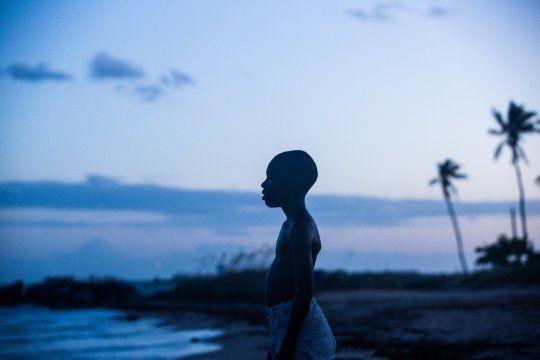
Before I get to my “official” Top 10, one title has been excluded for consideration due to conflict of interest, but would otherwise top my list.
youtube
Darling
Mickey Keating’s 3rd feature (produced by the fabulous Jenn Wexler, a.k.a. my girlfriend) is, of course, my favorite film of the year. I’ve seen it three times in theaters—twice in 2015 on the festival circuit, and again last April on opening night—and still keep finding new, subtle things about it to love.
The story: a young woman is paid to housesit a glorious old building while its eccentric owner is away. Is the house haunted? Is she unhinged? Maybe both? Star Lauren Ashley Carter—rightly recognized as “the Audrey Hepburn of indie horror” by The Austin Chronicle, is in almost every frame of the film and is never short of mesmerizing, whether answering the telephone, putting on make-up or getting her hands dirty by...well, let’s not give away the fun.
The black and white cinematography is gorgeous, the score crawls under your skin and the editing is legit terrifying. Watch with the lights out.
And now back to our official, less personally biased top 10, in order...
youtube
Moonlight
Without question, the most accomplished, most moving film of 2016.
James Joyce once noted, “In the particular is the universal.” Moonlight is atop my list in no small part because it’s so breathtaking in its particular intimacies.
Moonlight is like Boyhood on a budget: it drops us into three important periods in the life of a boy who becomes a teen who becomes a man—at first bullied and confused, increasingly neglected by his crack-addicted mother and influenced by a kind-hearted, drug-dealing surrogate father. We see him harden, over time, under the pressure of a world with no use for softness, and then, perhaps, reconnecting with a lost bit of himself, at long last.
Writing that synopsis, it strikes me how easily such a story could have tipped into cliché and melodrama. Perhaps because writer/director Barry Jenkins and playwright Tarell Alvin McCraney are both from the Liberty City projects themselves. their knowledge—coupled with a great cast, an impeccable soundtrack, a deft use of color and Jenkins’ masterful control of tone—l gives Moonlight specificity, and that makes it universal.
youtube
Jackie
Tone is a theme for the first three films on my 2016 list—four if you count Darling, and you most definitely should. Pablo Larrain’s Jackie puts us inside the experience of First Lady Jackie Kennedy in the aftermath of JFK’s assassination, in a way I never thought I could experience:
Your husband was just murdered; his blood is on your dress. Your life is cracked, and even if you put the pieces back together, nothing will ever be the same. Oh, and he’s the president—was the president—so your country is broken, too. History has its eye on you, so while the crushing weight of grief bears down, try to look good for the cameras. It’s only his legacy at stake.
It seems ludicrous to say that Oscar-nominated Natalie Portman is underrated, but somehow she is—and I adored her in Black Swan. In Jackie, she’s working at another level. Open and wounded when no one but us can see, calculating and brittle and angry before an eager reporter. I am excited to see Portman does next.
Special mention to Mica Levi’s score, her second feature after 2013′s Under the Skin. Can’t wait to hear what she does next, too.
youtube
The Witch
Someone had the terrible idea to market The Witch as “the year’s scariest movie.” It’s not, nor is it trying to be. It is, however, among the most unsettling films of this year or any other. (Again: tone.)
The story: it’s 17th century New England. William, his wife Katherine, and their five children have been kicked out of the settlement being too religious (it seems, or perhaps just too self-righteous) and must find a way to survive on their own on the fringes of the deep, dark wood.
Before you have time to wonder if the titular witch might be metaphoric, she shows up and does something unspeakable to William and Katherine’s newborn son. Things go downhill from there, exacerbated by both outside, malevolent forces and unacknowledged tensions within the family unit.
The Witch looks gorgeous, as well it should. First-time director Robert Eggers made his bones as a production and costume designer, and reportedly built an actual, mostly working 17th century farm for the film. Even the dialogue itself was built out of scraps of things people wrote and said back then. You can feel the authenticity, which makes the family’s isolation feel that much more acute and dangerous.
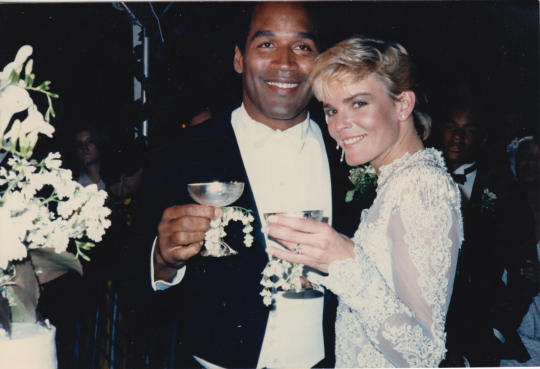
O.J.: Made in America
Bob Dylan never asked “How many minutes does a film have to be, before we can call it TV?” but the answer, my friend, is probably not much more than the 467 minute runtime of Ezra Edelman’s O.J.: Made in America. (For comparison, that’s almost 3 hours longer than a full season of HBO’s Veep.)
It doesn’t help that it was produced by ESPN, or that it aired on that cable network less than a month after it’s Oscar-qualifying theatrical run. And yet...it was my favorite documentary in a year of many great docs (more on that later), so if wants to call itself a movie, I’ll roll with it.
2014 marked the 20th anniversary of the murders. The revived attention around the so-called “trial of the century” led to two great works of art, Edelman’s doc and FX’s American Crime Story: The People vs. O.J. Simpson. (One can only wonder how our present political moment will be filtered through the culture of 2018).
Rather than produce O.J. overload, the two projects complement one another—the dramatic series taking us inside the lives and hearts of key figures on both legal teams, while the doc simultaneously expands the scope and deepens the focus—showing us more about who O.J. was before, during and after, and what America was and still is, especially but not only in Los Angeles, but also in Ferguson, on Staten Island, everywhere. If it takes Edelman 8 hours to set up all details to knock us down with his larger point, well, that’s 8 hours well spent.
Trailer: https://www.youtube.com/watch?v=HrB3rOcrJxg&list

The Lobster
Yorgos Lanthimos’ Dogtooth was one of my favorite movies of 2010. He’s back on the list with a film that’s just as strange but far more accessible.
I love absurdism, deadpan humor, magical realism and dystopian fantasy, but I can’t recall a film that manages the trick of juggling all three at once as The Lobster does—with an honest-to-goodness love story right there in the middle.
I’ll skip the premise—if you don’t know it, watch the trailer.
The cast is great, and Colin Farrell is a revelation, topping my previous Farrell favorite, the criminally under seen In Bruges. Lanthimos packs the film with small details that make the surreal world of The Lobster believable. The first shot packs an entire story of love, betrayal and murder (which is never revisited) into a single, long take. And its final, wrenching moments will stay with me forever.
Film critic Britt Hayes got to the heart of the filmmaker’s uncanny alchemy when she noted “Lanthimos doesn’t heighten reality to an absurd degree; he heightens the absurdity of our existing reality.” Or put another way, he doesn’t add absurdity, he just turns the heat up on reality and our own absurdity bubbles to the surface.
Trailer: https://www.youtube.com/watch?v=LTNZmOJxuAc
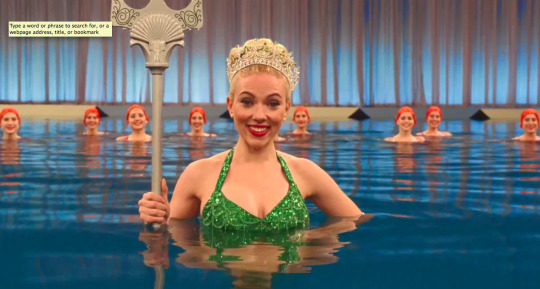
Hail, Caesar!
There’s this other movie that’s sort of a throwback to old Hollywood, with some singing and dancing in it. That movie’s fine, but don’t hold your breath, it didn’t make my list. For my money, the real love letter to Hollywood—and why the movie industry matters—came from the Coen Brothers.
Now, it wouldn’t be a Coens movie if that tender heart weren’t covered under many layers of arch cynicism, stylized reference bordering on “acting” “in” “quotation” “marks” and the occasional silliness. But you don’t have to peel much of it away to see the real love they have for not just the magic of movies but also the joy in so many abandoned film genres that once ruled the box office—be they Gene Kelly musicals, Gene Autry oaters or C.B. DeMille bible epics, to name but a few recreated here.
For me, Hail, Caesar! sits perfectly between the sour cynicism of the Hollywood in Woody Allen’s misanthropic Cafe Society and the false romanticism of the ambition-for-ambition’s sake “dreamers" of La La Land who prize the warmth of the spotlight over any real human affection.
Trailer: https://www.youtube.com/watch?v=1NYpz_j3e38
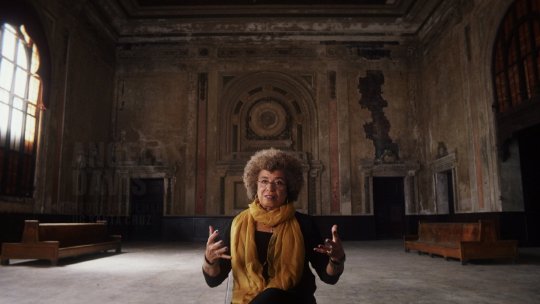
13th
Ava DuVernay’s 13th is a civics lesson for a country in dire need of one. With a controlled but searing ferocity, the documentary lays out the case that the 13th amendment allowed the continuation of a system of oppression and control not all that from slavery: the criminal justice system. If you haven’t read your Constitution lately, here’s a refresher on the 13th, the amendment that ostensibly ended slavery:
“Neither slavery nor involuntary servitude, except as a punishment for crime whereof the party shall have been duly convicted, shall exist within the United States, or any place subject to their jurisdiction.”
This one, terrible clause not just perpetuated slavery under another name but incentivized an expansion of the definition of criminality, in order to profit from the subjugation of mostly brown and black bodies, which has led to an explosion in America’s incarcerated population. In effect, through laws designed to maintain segregation, blackness itself has been criminalized.
With Jim Crow, redlining, lynching (terrorism by another name) and the like, the 13th has led to a more unequal society—and, indirectly, to leaders who lie and stoke racial, as well as religions and ethnic, divisions in order to maintain the ever-growing class divide from which they profit.
This poor summation doesn’t do justice to the full weight of the case DuVernay and her experts make, or how well they make it. 13th should be required viewing by everyone, but most of all by those who hold the power to make and enforce the law.
Trailer: https://www.youtube.com/watch?v=V66F3WU2CKk
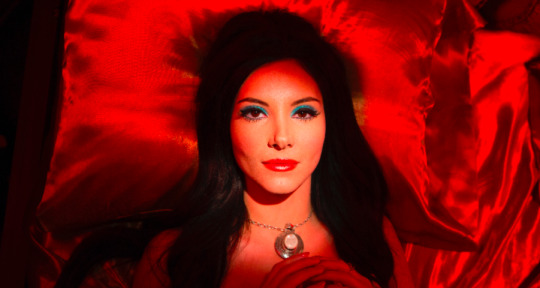
The Love Witch
Let’s start with the obvious: Anna Biller’s The Love Witch is a gorgeous film. Turn the sound off, re-order the scenes at random and you still can’t take your eyes off what looks like a lost Technicolor American Giallo from 1972. Biller not only wrote, edited and directed the film but also handled production design, art direction, set decoration and costuming, almost single-handedly crafting one of the best looking films of 2016.
Beneath that dazzling frosting is a rich, feminist layer cake. Elaine is a witch specializing in sex magic, who believes her path to happiness lies in finding the right man, seducing him and pleasing him in every way. On paper, she’s a patriarchy’s dream come true. But when these lustful men inevitably fall short—as they all must, as patriarchy itself is built on a lie—she gets rid of them, permanently. Poor, unfulfilled Elaine.
The Love Witch is Biller’s own magic trick, casting its spell over us with its color, its throwback ‘70s sexploitation vibe and its razor-sharp message we don’t notice until the blade has slid, quietly, between our ribs and stabbed us in the heart. Metaphorically.
Trailer: https://www.youtube.com/watch?v=bXjDEDYlu7c
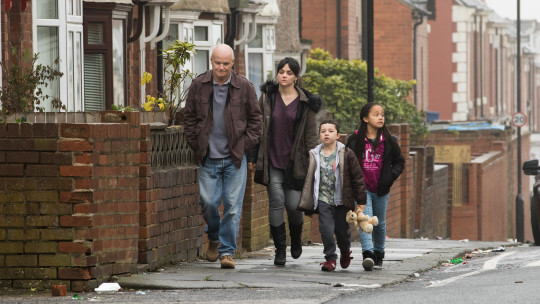
I, Daniel Blake
Daniel Blake has spent a lifetime working with his hands, supporting a modest but pleasant life for himself and his late wife. After a heart attack, his doctors tell him he’s not fit to return to work—yet with a simple questionnaire (and absent any input from his doctors), the government’s welfare bureau deems him too fit to qualify for disability.
He can apply for unemployment benefits, but only if he’s actively seeking work—work which, according to his doctors, he can’t accept. Caught in a catch-22, he must appeal to an unreachable “decision-maker” for relief—provided he can find a way, without income or assistance, to get by while he waits. Then Daniel meets a single mother in stuck in a similar situation and does his best to help her struggling family, even as his own situation grows worse.
Ken Loach’s drama won the Palm D’Or at Cannes but has received not much notice since then, at least outside the UK, perhaps because of the specific criticism of the British welfare bureaucracy at the heart of the story. But you don’t need much imagination to see how things can be as bad or worse for the many Daniel Blakes of this country.
Loach has been making socially conscious films about the struggles of the working and lower classes for longer than I’ve been alive. As with Jenkins and Moonlight, it’s clear Loach knows this world, these people and their struggles, and knows how to tell their particular stories in a simple yet powerful, moving and universal way.
Trailer: https://www.youtube.com/watch?v=f4KbJLpu7yo

The Handmaiden
Apologies if you’re getting whiplash. I went from a highly stylized Love Witch to a pared-down I, Daniel Blake. Now I’m going to swing back the other way with Park Chan-Wook’s sensual, sensuous The Handmaiden.
As has been the case in years prior, the 10th (really, 11th) and final spot on my list could have gone to a number of worthy films, and almost did—I began writing up another film here before realizing there’s no way I could round out 2016 without giving The Handmaiden its due. (Sorry, Elle!)
The story of The Handmaiden is...too complex to go into here, frankly. There’s a con man and his female accomplice. There’s a rich heiress and her controlling uncle. Some of them are Japanese occupiers; others native Koreans. Oh, ands there’s a library of dirty, dirty books.
Cons are conned, crosses are doubled, no one is quite who they pretend to be and everyone is up to something. In the end, something real is found and, through it, freedom is won.
The Handmaiden is a thriller as elegant as it is perverse. Every change in perspective brings new meaning to all that’s come before. Every twist revealed is a delight. Park Chan-Wook is at the top of his game.
Trailer: https://www.youtube.com/watch?v=Q4Z5jfjxdvQ
Honorable Mentions & More
Wait, don’t get up. There’s more!
First, let’s start with honorable mentions that you already know are great:

Paul Verhoeven’s psychological thriller Elle, which features Isabelle Huppert in one of my favorite performances of the year, or maybe ever.
Denis Villeneuve’s Arrival, which goes on my list of essential smart science fiction, along with Gattaca, Ex Machina, Primer and Under the Skin, to name a few.
Sing Street, one of the most joyful films of the year. A misfit ‘80s Irish teen starts a band so he can cast the girl he likes in their highly creative music videos. From John Carney, the filmmaker behind the equally charming Once.
Nicolas Winding Refn’s mad look at fashion, envy and unchecked ambition (kind of the anti-La La Land?), The Neon Demon.
Next, films that might have been off your radar but are well worth seeking out:
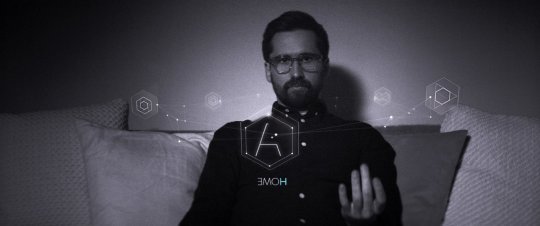
Benjamin Dickinson’s Creative Control, a very-near-future sci-fi film about augmented reality, and the augmented lives we all want to pretend we’re living (at least on Instagram). A must-see for all my friends in media, marketing or technology.
Elizabeth Wood’s directorial debut, White Girl, in which a New York City undergrad moves to Queens, dates her local corner drug dealer and learns first hand the limits of her privilege in both their lives.
Taika Waititi’s The Hunt for the Wilderpeople, a reluctant buddy comedy/coming-of-age film that’s way more fun than it has any right to be.
Todd Solondz’s Weiner-Dog, a dark, dark comedy stringing together four tales of unhappy people, all of whom at one point own the same sad canine. Or, for you hard-core cineastes: Au Hasard Dachshund.
American Honey, Andrea Arnold’s sprawling tale of wayward youth living for the moment across a vast swath of America, high and low.
The animated documentaries Tower, which looks back on America’s first campus mass shooting in a surprisingly moving way, and Nuts!, which is the rare doc with an unreliable narrator, which fits the unreliable (Trump-like) conman at the center of its story.
Julian Rosefeldt’s Manifesto, which I was fortunate enough to experience as a multi-screen installation at the Park Avenue Armory but has been adapted (rather successfully, it seems) as a traditional film. Either way, Cate Blanchett takes on a dozen different guises in a sequence of stunning short films, the text of each comprised of bits of famous manifestos, from Karl Marx’s Communist Manifesto to Jim Jarmusch’s Golden Rules of Filmmaking.
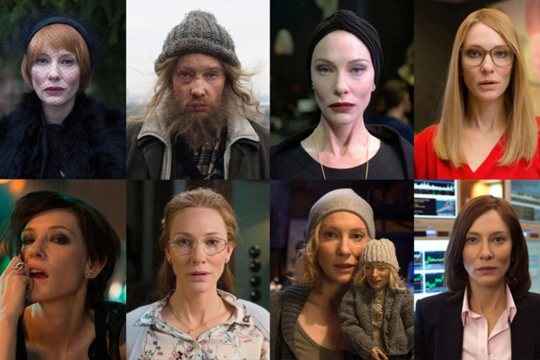
And last, because the horror genre in near and dear to my heart, here’s #4-#10 on my year’s best horror list. (The top 3 being Darling, The Witch and The Love Witch.)
The Invitation
Green Room
Demon
Under the Shadow
Train to Busan
10 Cloverfield Lane
Southbound
Honorable mention: the “Happy Father’s Day” segment of Holidays
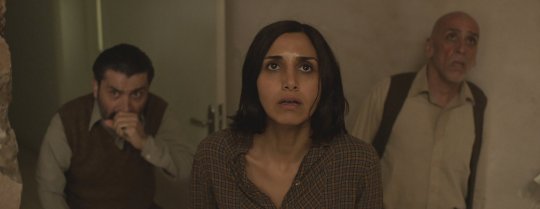
Past years: 2015, 2014, 2013, 2012, 2011, 2010, 2009, 2008
#movies bestof2016#darling#moonlight#jackie#oj made in america#the witch#the love witch#the lobster#hail caesar#13th#i daniel blake#the handmaiden
1 note
·
View note
Text
Civil penalties for polluters dropped dramatically in Trump’s first two years, analysis shows
https://wapo.st/2FWAk44
Civil penalties for polluters dropped dramatically in Trump’s first two years, analysis shows
By Juliet Eilperin and Brady Dennis | Published
January 24 at 9:00 AM EST|
Washington Post |Posted January 24, 2019 |
Civil penalties for polluters under the Trump administration plummeted during the past fiscal year to the lowest average level since 1994, according to a new analysis of Environmental Protection Agency data.
In the two decades before President Trump took office, EPA civil fines averaged more than $500 million a year, when adjusted for inflation. Last year’s $72 million in fines was 85 percent below that amount, according to the agency’s Enforcement and Compliance History Online database.
Cynthia Giles, who headed EPA’s enforcement office in the Obama administration and conducted the analysis, said the inflation-adjusted figures represent the lowest since the agency’s Office of Enforcement and Compliance Assurance was established.
The decline in civil penalties could undermine EPA’s ability to deter wrongdoing, some former agency officials said, because they help ensure it is more expensive to violate the law than to comply with it. But Trump administration officials have said they are focusing much of their effort on working with companies ahead of time so they don’t run afoul of the law, rather than punishing them after the fact. That approach, they say, will ensure business operations can thrive without harming the environment.
Giles, now a guest fellow at the Harvard Environmental and Energy Law Program, questioned whether the new approach can achieve what administration officials promise.
“The public expects EPA to protect them from the worst polluters,” she said. “The Trump EPA is not doing that. What worries me is how industry will respond to EPA’s abandonment of tough enforcement.”
During his confirmation hearing last week, EPA acting administrator Andrew Wheeler told lawmakers that there had been “a lot of misleading information” suggesting that the agency had gone easier on polluters under Trump. He singled out recent reports from environmental and governance groups that said EPA’s enforcement had sagged.
Wheeler pointed to the fact that EPA had opened more criminal enforcement cases during 2018 than the year before, reversing a downward trajectory. He said enforcement actions last year resulted in removing “809 million pounds of pollution and waste” from the environment. And he emphasized that the agency had worked with companies it oversees to ensure they comply with federal rules, rather than levying charges against them or imposing fines.
“And I think the more compliance assurance that we have, the fewer enforcement actions we need to take,” he said.
But the analysis conducted by Giles, and reviewed by the Environmental Integrity Project, shows that in addition to the drop in civil penalties for polluting, the amount of money companies must pay to come into compliance with federal environmental laws also declined last fiscal year, to nearly $5.6 billion. That represents the lowest amount of injunctive relief since 2003, in inflation-adjusted dollars, and is below the roughly $7.8 billion average for the two decades before Trump took office.
EPA officials declined to disclose the exact figures for last fiscal year’s civil or criminal penalties, saying they could do so only after the partial government shutdown is over.
EPA spokesman John Konkus said in an email that a staffer at the agency’s enforcement division looked at publicly available data and the results analysis by Giles, but that the agency “still cannot confirm the numbers or the analysis.”
But he noted that large injunctive penalties, in particular, can span administrations. “EPA’s career enforcement staff work continuously to initiate and conclude cases, regardless of administration,” he said. “We are proud to continue work that was initiated in prior administrations and to celebrate that good work when it is complete.”
The agency’s roughly $500 million annual average for civil fines is well above what the EPA has typically collected in any given year. Settlements worth billions of dollars that resulted from the 2010 BP oil spill and the more recent Volkswagen emissions cheating scandal significantly increased the agency’s average.
But even when excluding the two biggest settlements over the past two decades, the Trump administration’s total last year represented a roughly 54 percent drop from the annual average.
Civil penalties, which the EPA applies for a range of violations, from water contamination to air pollution, aim to recover the financial benefit a company has reaped by breaking the law and to impose additional costs so that firms are deterred from doing it in the future.
While EPA often imposes civil penalties in cases that also involve criminal conduct — such as in the case of Volkswagen’s emissions cheating scandal — the agency typically pursues criminal penalties when a firm knowingly and intentionally violates the law or engages in gross negligence. Duke Energy’s decision not to repair corroded pipes that lay under a coal ash pond that collapsed in North Carolina in 2014, for example, constituted a criminal case.
Susan Bodine, who heads EPA’s Office of Enforcement and Compliance Assurance, said in a brief interview earlier this month that penalties for corporate polluters can “vary from year to year,” and that the numbers will undoubtedly rise in 2019 because the federal government recently reached a major settlement with Fiat Chrysler Automobiles over emissions cheating.
That agreement includes a civil penalty of $305 million — a figure the EPA noted is four times more than all civil penalties it collected last fiscal year. “This case also demonstrates that while our overall number of case conclusions declined slightly in FY 2018 from 1,978 to 1,818 cases, EPA is continuing to direct its resources to the most significant and impactful cases,” the agency said in a news release.
The recent settlement with Fiat Chrysler began with a notice of violation that EPA sent the company on Jan. 12, 2017, just before Barack Obama left the presidency.
Eric Schaeffer, executive director of the advocacy group Environmental Integrity Project, said EPA’s enforcement record during Trump’s first full fiscal year offers a fuller picture of the administration’s approach to enforcement, because fewer cases would have been inherited from the previous administration.
“By that time, you should have momentum and you should be making your mark on the program,” said Schaeffer, who headed EPA’s Office of Civil Enforcement from 1997 to 2002, said he found the analysis accurate.
That said, there are signs that EPA has continued to pursue a number of cases the agency began before Obama left office.
In late December 2016, for example, the agency delivered a notice of violation to a scrap metal processing facility in Rockford, Ill., which was releasing an unlawful amount of lead into the air. Bob Ellis, senior vice president and general counsel for Alter Trading Corp., which bought the facility a few months before EPA took action, said in an interview that it has spent the past couple of years working with the agency to resolve the issue. He said the two sides had reached an agreement, but declined to disclose the terms because it was not yet public. “It was prosecuted fairly and settled fairly,” Ellis said.
Along with the Justice Department, the agency also has overseen completion of certain criminal cases from the Obama era. They include minor ones such as an auto repair shop owner illegally dumping chemicals down a drain and more significant ones, such as a company agreeing to a nearly $2 million fine for importing construction equipment with engines that did not comply with U.S. air emissions standards.
However a decline in the number of criminal investigators, which began during the Obama administration, has taken a toll. As of October, a Washington Post analysis showed, the EPA’s enforcement division was among the most affected by a broader exodus at the agency fueled by buyouts and retirements. It has lost at least 80 people since Trump entered office.
Konkus said in an email that the enforcement division has been authorized to fill some of those vacancies and hire as many as 164 criminal special agents. “OECA began recruiting agents last summer and is in the process of bringing additional agents onboard,” Konkus said, adding that the current number of agents is 147.
Under the 1990 Pollution Prosecution Act, the division is supposed to have no fewer than 200 criminal investigators. In December 2010, there were 272 at the agency, according to an analysis of Office of Personnel Management data, but that number declined during the Obama administration.
Wheeler suggested during his Senate testimony that the fact that Bodine was not confirmed until Dec. 7, 2017, had a meaningful impact on its enforcement activities.
“What our enforcement program needed in the Trump administration was a head of the office,” Wheeler said.
Bodine herself has emphasized the need to take a different approach when it comes to cracking down on polluters. On Aug. 21, 2018, she issued a memo outlining her thinking, in which she informed employees, “The EPA intends to evolve the National Enforcement Initiatives program into a National Compliance Initiatives,” italicizing key words for emphasis.
Those who support the administration’s approach call that the proper emphasis.
“It is better to prevent environmental violations from occurring in the first place than to act after-the-fact when environmental violations have already occurred. This is why improving compliance is so important,” said Daren Bakst, senior research fellow in agricultural policy at the conservative Heritage Foundation.
Democrats, meanwhile, have been pressing for months for greater scrutiny into the agency’s actions since Trump took office. The Government Accountability Office is investigating how the agency’s law enforcement duties are changing and whether it has adequate staff to execute them.
Rep. Frank Pallone Jr. (D-N.J.), chairman of the House Energy and Commerce Committee, called the agency’s enforcement numbers “abysmal.”
“The troubling lack of enforcement not only threatens the water we drink and the air we breathe, but also sends a dangerous message to polluters that EPA will continue to turn a blind eye,” he said. “I’m particularly concerned that EPA’s already weak enforcement will be further crippled by the ongoing Trump government shutdown.”
Andrew Ba Tran contributed to this report.
#donald trump#u.s. news#politics#trump administration#republican politics#president donald trump#trump#trump scandals#republican party#politics and government#public health#white house#climate change#environment#must reads#epa
0 notes